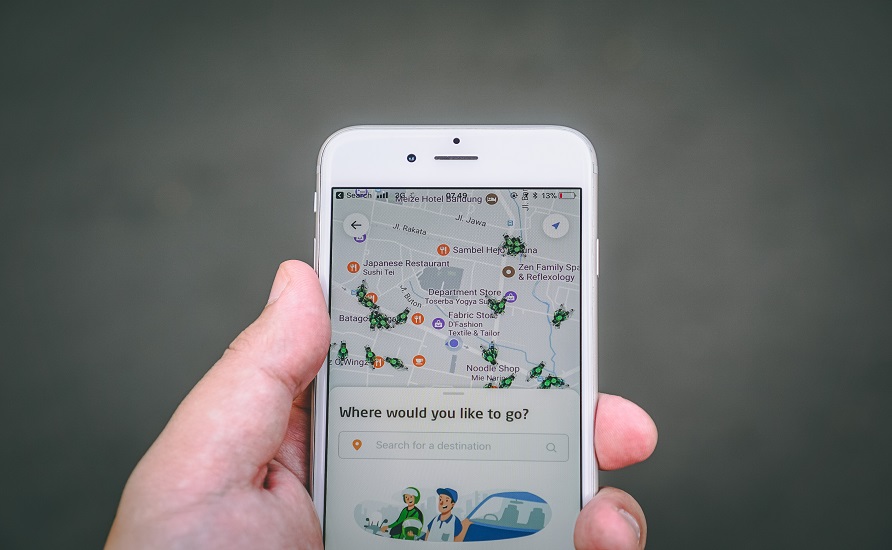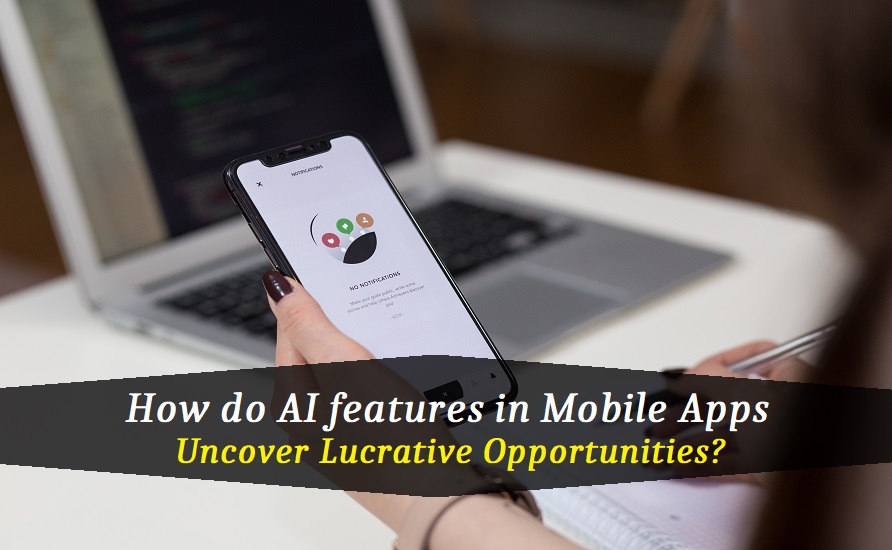The changes in the technology trends are inevitable. Few trends are just like seasons – they simply come and go. However, we must adopt exclusive trends that have the potential to bring seismic shift in the world. This is the event with mobile apps where several new technologies leveraged to redefine the app’s usability, reinvents the user experience and improve the retention.
Artificial intelligence is one of the technologies that has taken the driver seat in the mobile app landscape in the last decade by making futuristic concepts of movies a reality. The time mobile apps have started moving into the AI orbits, many things are invented and reinvented to make the people’s lives simple and unladen.
Now, AI is becoming the part and parcel of our lives at the neck-breaking speed, which we have even seldom realized in the form of voice assistants, predictive suggestions, proactive alerts, or personalized recommendations. It appears so natural that separating them from our lives seems implausible. The brighter side of AI is gearing up the smart shift without missing the mark.
This is why leading tech giants are investing a billion dollars in the AI technology to explore and experiment with the new use cases which meet the rising standards of the customer’s expectations.
Let’s take a look at how AI-powered mobile app is transforming the services catered:
1- Automated reasoning:

No human being can make the decisions as quickly and precisely as the intelligent algorithms make after weighing up the risks, benefits and resource allocation in an automated fashion.The algorithms possess a high degree of logical reasoning skills that can beat the human mind. The simple mobile apps are not smart enough to accomplish the same task.
But, it’s feasible when AI is integrated into the mobile app DNA. The AI on mobile lets the users complete the goal smartly and swiftly. For instance, the Uber app not only brings the rides request to the drivers, while also showcase them the best route to follow based on the time of the day and traffic conditions.
Applying AI technology to the utility apps improves the cognitive ability of the users and get the tasks completed in no time.
2- Predictive suggestions based on learning:

The AI technology is rightly defined in Wikipedia as- “The ability to perceive information, and retain it as knowledge to be applied towards adaptive behaviors with in an environment or context.”
Must read: What to Consider Before Building a Mobile App?
It indicates AI-powered mobile app learn and understand the user behavior as they browse and interact with the app. Every micro-interaction of the users and changes in behavior are sensed and recorded so that the customers’ need can be identified and fulfilled ahead of the time.
The instance of fraud detection is a perfect instance of it where the mobile payments the users are making using the credit card is analyzed by AI pattern-detecting algorithms. When any purchase or transaction is sensed in the credit card statement that’s going out of the behavior norm, the users are immediately notified of the same.
The disruptive Amazon’s anticipatory shipping of the product is another example of predictive analytics algorithms which sends the item to the customer before they need it, thereby avoiding the last-minute visit to the retail app to buy the product. Also, it helps in stocking the products in the nearest warehouses that enables the product delivery on the same day.
3- Personalise the user journey at the micro-level:
The high-degree of personalization has already become a powerful tool to impress the users and take the user experience to a whole new level. Gaining the insights from the user’s information, preferences, browsing history and purchasing habits, every user’s journey can be tailor-made which entice the users on a personal level.

The customer journey in the retail apps is personalized brilliantly where the mobile app analyzes every customer Touch point minutely and personalize their journey as they browse by providing the recommendations for the products they have viewed, the similar product they want to buy, or the best price offered by other sellers for the same product.
Also, the virtual assistants guide the users and provide recommendations for the product they like to buy or update them for the discounts. It makes the customers feel as if they are standing in the brick-and-mortar store and salesperson is assisting them in the shopping.
The TV streaming apps are also not behind, many apps have implemented AI to constantly engage the users not just with the fresh content, but with the content that users like the most to view. Netflix app is using the intelligent learning algorithms to make the recommendation to the users at the right time with the right content that has improved up-selling and cross-selling.
4- Reducing multi step tasks with voice assistants

The voice assistants like- Siri, Amazon Alexa, or Google Now have shifted from nice-to-have element to must-have as the people have become so familiar with the voice interface that they want the work gets done as they speak. This is why the tech giants have opened the gates for the voice interface integration by providing the APIs.
Be it search process, navigation, booking an appointment, sending a message or scheduling a meeting through the app, the AI voice interface integrated with mobile app get all things done as the user command. It saves a lot of time because of the elimination of numerous steps that include- opening the app, then the specific function and then accomplishing the task.
Recently, in the iOS 12 update, Apple has introduced Siri shortcuts wherein the users can add a voice interface to the app just by simply opting for ‘Add to Siri’ option and every function of the app will work as the users speak by bidding a goodbye to the typing needed. Moreover, the enhanced Siri will even make personalized recommendations to the users based on the app usage and browsing patterns.
For instance, you simply ask Siri to find the 5-star hotel in close vicinity and book a table for two people, it will immediately search for the hotels and display the list of hotels around and ask you in which hotel you want to book the table.
Conclusion
The mobile application generates enormous data, that’s a privilege, which developers owe to their customers to make the mobile moments intuitive and intriguing. AI is a thrilling space that makes the user sessions memorable and makes them feel valued as the technology not work for them, while, working with them.
The AI integration is proliferating and unfolding ample of opportunities that are making mobile apps highly-useful and helping the businesses prosper with the best analysis of the customers and serving them what they have not EverReady. The tangible results are gearing up the businesses to embrace and harness the power of AI. What’s your take? Ready to go with the flow or still waiting for others to experiment? Share your thoughts in the comments below.
A piece of advice- Don’t see your future in the future, instead, adopt the futuristic technology to make the app future-proof with myriad of advantages.
Never miss a story..!!
Grab the Latest SEO & SMO News, Tips, Updates & Trends..!!
See Our Blogcenter
Image1 Credit by freestocks | Image2 Credit by rawpixel | Image3 Credit by CoinView App | Image4 Credit by Fikri Rasyid | Image5 Credit by Oliur



